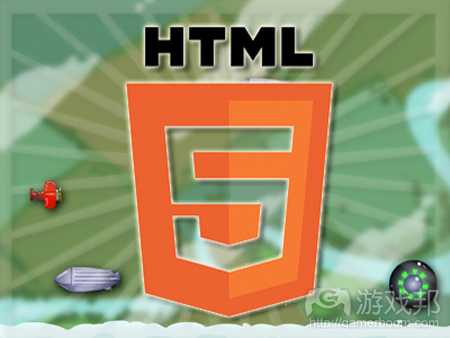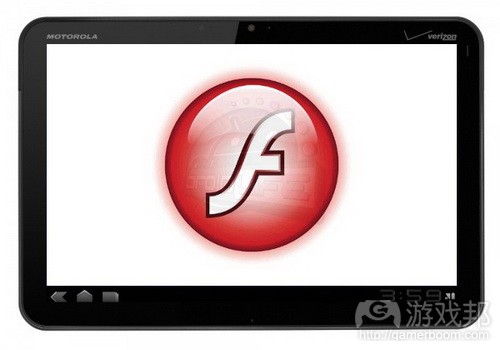阐述2011年HTML5游戏行业的发展历程和变化
作者:Mark Wilcox
有关HTML5游戏的讨论总是在不断发生改变。
在短短12个月的时间里,我们的讨论话题从刚开始的“嗨,这种我能用来制作游戏的新技术/标准究竟是什么?”转变为“嗨,我能利用这个技术来赚钱。”和“嗨,看看我能够利用的这些工具,简直令人称奇。”
但是,在实现中这个转变期间的讨论话题是什么呢?未来12个月我们又将讨论什么话题?
自从开发者世界开始认同HTML5是适合游戏开发需求的标准,在数年时间里整个行业都在努力追逐及满足这个日益膨胀的社区的需求,这是目前所看到的事实。行业的一致步伐使得曾经顽固的Internet Explorer最终选择对游戏予以重视。苹果的行动同样迟缓,去年年末终于推出更新系统iOS 5。开发者们终于可以将苹果的手机设备选择为目标平台,利用提升后的性能构建高质量街机游戏。更令人欣慰的是,世界各地的手机游戏门户运营商都注视着这片领域。目前,持有iOS设备的用户多达数百万,从理论上来说,有数百万用户不受App Store控制而自由体验游戏,这确实是个巨大的商机。手机web游戏的开发就此开始,因此讨论的话题很快转向盈利和商业利益层面。
但是对我来说,改变最大的讨论话题是“我要从何处开始?”快速浏览Twitter和开放web开发社区后,你会发现现在人们对工具、引擎和构架极为关注。
高端软件开发商Adobe也有所改变,发布了Adobe Edge。尽管它并非游戏专用工具,其提供用于制作web内容的丰富工具套件,在基于此工具制作内容时我们可以使用与构建游戏相同的开放标准。如果你对HTML5、JavaScript和CSS间的密切关系有所怀疑,Adobe Edge能够帮助你驱除困扰。这确实很不错。它为开发者提供了方法,将讨论话题转变回“我要怎么…?”
发布于2011年的ImpactJS是款优秀的稳固HTML5游戏开发引擎,是杰出设计和完美时机结合的典范。在Impact发布后,HTML5游戏社区的讨论话题是“我要如何开始?”、“为什么它不这样做?”以及“我觉得自己正同这个工具搏斗”,当然还有开发者在使用工具时碰到的问题,比如“HTML5音频到底要怎么制作?”
业余开发者和小型工作室努力成为繁荣发展的HTML5游戏世界的领头羊,于是不久讨论话题就包括了“我如何能快速着手开发HTML5游戏”和“低风险、低成本制作出HTML5游戏的渠道是什么?”
ImpactJS等游戏引擎不仅证实了此类工具有一定的市场,还体现了HTML5游戏的市场广阔且正在不断成长。网络上开始出现了以下讨论话题:有多少人在玩这些HTML5游戏?HTML5游戏是否真的有市场?或许,“谁正在玩这些游戏?”这个最重要的问题目前还没有答案。
Facebook帮助该领域得以发展。这个全球最重要的网站运营公司声称,他们计划将社交游戏扩展至手机设备,这着实是个令人震惊的想法。我觉得,即便到现在,我们都还未完全理解其重要性。任何有关HTML5游戏市场规模的问题,它们的答案都令人兴奋。Facebook的3.5亿手机用户都将进入这个市场。
不久之后,Dextrose和RocketPack等成功公司的产品和技术就被Zynga和Disney等游戏巨头所采用。游戏开发社区也不甘示弱。他们转变战略,大型游戏门户网站开始选择Spil Games所走之路,将HTML5游戏视为他们的未来。“我们想要制作HTML5游戏。哪个才是最好的引擎呢?谁是最适合的开发者?谁能够提供我们现在需要的游戏?”
HTML5游戏开发者又成为了讨论的焦点,而游戏引擎制作商开始投入全部精力,让自己的软件提高至生产标准。每个人都想要拉拢这些新出现的游戏制作者和他们所拥有的品牌。现在,开发者可以使用的引擎和小框架已经足够丰富,于是讨论话题又转变回“什么是最好的引擎?”和“哪个引擎可以制作出最好的游戏?”“哪个引擎能够让我自由地制作我期望的或市场想要的游戏?”
随后,2011年11月HTML5游戏世界又迎来激动人心的时刻,Adobe宣布放弃支持其手机Flash平台。
数年来Flash对手机设备所带来的影响使得这个做法是否恰当仍有待商榷,但这个举措对逐步强大的web游戏社区的重要性不可小觑。Adobe这个web体验行业的重磅参与者为HTML5开发者敞开大门,这些人满怀信心地蜂拥而入。因此,游戏发生了改变。Flash开发者们注意到了这种改变,开始将他们的注意力转移到这个行业新宠儿的潜力上。Flash开发者为该领域带来的是丰富的经验和才华,这正是HTML5发展所需要的。
HTML5游戏制作工具开始获得了更大的曝光度。看看Scirra和GameMaker,这两者中都有着活跃和丰富的社区。这些公司促使行业将讨论话题转回“嗨,看看我做出什么来。”和“哇,我能做出这种游戏来!”
我很高兴业余程序员能够在游戏开发世界中扮演重要角色,这些人坐在卧室中畅想优秀的游戏,然后打开电脑将梦想变成现实。将讨论话题保持在分享游戏成品而不是探究如何开发至关重要。
我们确实需要见到更多的游戏。游戏是好是坏没有关系。如果开发者能够制作出他们乐于体验的游戏,那么他们就会喜欢上制作游戏的过程,这对所有人来说都很有好处。质量的提升来源于经验和信心。制作优秀游戏的关键在于开发过程的最后10%,你无法通过教授来让人们理解这个理论。他们需要自行观察和总结,理解游戏中缺失的东西或需要摒弃的东西。
自行编写引擎和构架的人越多,使用的人就越多,工具和引擎就会变得越优秀。对于行业的发展,每个人都不可或缺。
简单地说,尽管这个标准只问世一小段时间,但过去12个月以来我们看到HTML5游戏的讨论话题出现明显改变,从原先的好奇感和探索心情转变为更切合实际的开发效率和商业定位。我唯一的担心是,这些业余程序员和游戏设计师在这个工具、引擎和商业化迅速发展的世界中将难以找到立足点。
我希望上述情况不会出现,开发者社区的讨论继续围绕“看看我用这项技术做出的优秀游戏!”这样的话题。如果你是个HTML5游戏开发者,那么游戏行业的未来将属于你。如果你很擅长这个方面,那么你就能够获得收益回馈。不要丧失对游戏开发的激情。有许多工具正在不断出现,它们能够改善你的生活。不妨持续向你自己提出“我要如何实现这个目标?”或“假如…会不会更好?”这样的问题。(本文为游戏邦/gamerboom.com编译,拒绝任何不保留版权的转载,如需转载请联系:游戏邦)
HTML5 gaming – what are we talking about?
Mark Wilcox
The conversation about HTML5 gaming is changing all the time.
In just 12 short months we’ve gone from starting conversations with “hey, what’s this cool new tech / standard I can make games with?” to “hey, I can make some money here,” and “hey, look at all these amazing tools I get to play with.”
But what were the conversations we were having inbetween and what are the conversations we could / should be having in the coming 12 months?
It’s true that in the few years since the dev world adopted HTML5 as a standard fit for gaming requirements the vendor world has dragged its heels somewhat in trying to catch up and meet the requirements of the rapidly expanding community. Consistent support across the board is slowly emerging with the ever stubborn Internet Explorer finally adding some weight to the game.
Sluggish adoption is no more evident than in the iOS 5 upgrade pushed out by Apple towards the back end of last year. Finally developers could target Apple’s mobile devices and enjoy a practical amount of horse power for constructing good quality arcade games.
Better still the eyes of the world’s mobile gaming portal operators were opened and opened wide. Millions of people own iOS devices and millions of people playing games that are free from the trappings of App Store regulation means, in theory, greater margins.
Mobile web gaming took off and the conversations soon turned to that of monetisation and commercial interests.
But for me it is the conversations that typically started “where do I start” that have changed the most.
A quick look around Twitter and the open web development community in general will show you that there is now a tremendous focus on tools, engines and frameworks.
High profile software vendor Adobe changed things when it announced Adobe Edge. Although it’s not game specific it certainly provides a rich tool set for creating content for web presentation using the same open standards that we use to build games. If you’re in any doubt about the intimate relationship between HTML5 markup, JavaScript and CSS Adobe’s Edge will help you to muddle through.
This is good. It gives developers a way in and changes the conversation back to “how do I …?”
ImpactJS, a well established and robust HTML5 game development engine launched in 2011 is a fantastic example of that blend of good design and perfect timing.
Around the time of Impact’s launch the conversations in the HTML5 gaming community were stuck at “where do I start?”, “Why won’t it do this? “, “I feel like I’m fighting this,” and of course the biggest pain in everybody’s backside “what the hell is the score with HTML5 audio?”
Such was the urgency for amateur developers and small studios to try and make some headway in this burgeoning world of HTML5 gaming the conversations soon included “how can I get started quickly and reliably with HTML5 games?”, “what is the path of least risk (cost) in creating HTML5 games?”
Solid game engines like ImpactJS proved not only that there was a market for such tools but also that the market for HTML5 games was rich and growing. Conversations could be seen emerging on the web along the lines of “how many people are playing these HTML5 games?”, “Is there REALLY a market for HTML5 games?” Perhaps the most important question of all “WHO is playing these games?” was yet to be answered.
Facebook kept the wave from falling.
For what is arguably the most important web site out there to state that it would extend its social gaming to mobile devices was an enormous event. One that I feel really hasn’t been fully understood for its importance even now.
Any questions surrounding the size of the market for HTML5 games were answered in a heartbeat.
Facebook’s 350 million mobile users were all entering the arena.
Soon the high profile successes of companies like Dextrose (AVES engine) and RocketPack would be matched by similarly sized outfits looking to have their technologies adopted by comparable giants to Zynga and Disney.
The game development community couldn’t lose. Strategies shifted and large gaming portals started to follow Spil Games’ direction by embracing HTML5 games as the future.
“We’re going to make HTML5 games. So what’s the best engine? Who are the best developers? Who can give us the games that we need right now to bolster our portfolio?”
HTML5 game developers were right back at the centre of the discussion and game engine creators started to put 48 hour shifts in to get their own software up to production standards. Everybody wants this new wave of game creator to be on side and in bed with their brand.
There are so many engines and smaller frameworks available to developers now that the conversations have again switched back to “which is the best engine?” and “which engine has produced the best games?”
“Which engine will give me the flexibility to produce the games that I / the market want to make / see?”
Then in November 2011 the world of HTML5 gaming took another significant shot in the arm from an unexpected source when Adobe announced it was cancelling support for its mobile Flash platform.
Although it’s arguable just how much of an impact Flash has had on mobile devices over the years the importance of this announcement to the broader web gaming community cannot be overstated. Adobe, a huge player in the business of providing rich web experiences, had flung the doors wide open for HTML5 developers to stampede through with greater confidence.
Consequently the game changed.
Hardened Flash developers took notice and began to turn their attentions to the potential for this new kid on the block. Again as a direct consequence the bar was and still is being raised. Flash developers bring with them an enormous amount of experience and talent which, if HTML5 is to be taken seriously, is much needed.
Tools for HTML5 game creation are really starting to gain greater exposure. Just go and look at Scirra and GameMaker. Both of whom enjoy active and fertile communities. These companies are helping to turn the conversations back around to “hey, look what I can make” and “wow, I can do THIS!”
I love the fact that amateur coders, such as myself, can still play a huge part in the world of game development by sitting in their bedroom dreaming up great games and then turn to their computer and, well, just make it happen. This is vital in keeping the conversation focused around “WOW!” and not “How?”
We really need to be seeing more games.
Games that are good, bad and ugly. It really doesn’t matter.
If somebody creates a game that they’ve enjoyed making such that they’re in love with the process of making games then that’s great for everybody. Quality comes with experience and confidence.
You can’t very well teach somebody that the real crunch in making a great game comes in that final 10% of its development. They just have to see it for themselves and understand what was missing or not required.
The more people writing their own engines / frameworks and the more people using off the shelf tools and engines the better. Everybody has their part to play.
So in short, although the standards have been around for a little while now it’s really only in the last 12 months that we’ve seen significant changes in the way that we discuss HTML5 games. Moving from a sense of intrigue and exploration to a more practical sense of efficient development and commercial positioning.
My only fear is that the amateur “bedroom” coder / game designer becomes intimidated and struggles to find a foothold in a rapidly developing world of tools, engines and commercialisation. As exciting and indeed necessary as all of those things are they can very well provide a psychological barrier to entry at the most amateur level.
I hope I’m wrong and the conversation amongst the developer community continues to centre around “Look at the cool games that I’m making / can make with this technology!”
If you are an HTML5 game developer then the future is yours. If you become good at it you will be worth money. Never lose sight of your passion for games. There are plenty of tools emerging to make your life easier. Always ask yourself “how can I make this?” or “wouldn’t it be cool if…” (Source: spacemonsters)


